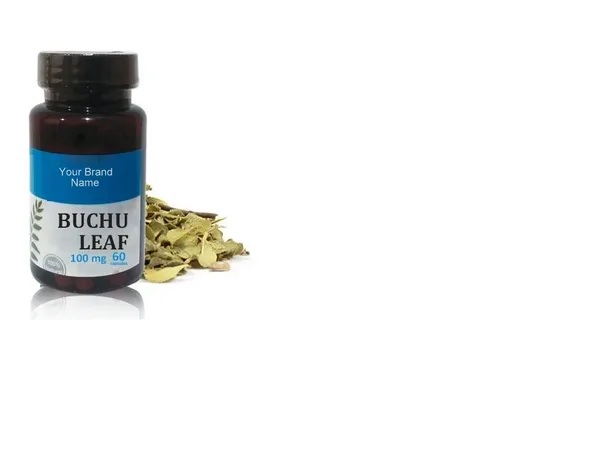Buchu, scientifically known as Agathosma betulina, is a flowering plant native to South Africa’s Western Cape region. Revered for its medicinal properties and traditional uses by indigenous peoples, Buchu has garnered attention globally as a botanical supplement. In this comprehensive guide, we will explore the origins, nutritional composition, health benefits, dosage recommendations, and safety considerations associated with Buchu supplements.
Understanding Buchu
Origins and Traditional Use
Buchu has a long history of use among indigenous peoples of South Africa, including the Khoisan and Xhosa tribes. The leaves of the Buchu plant were traditionally brewed into teas or used topically as poultices to address various health concerns. Indigenous peoples valued Buchu for its diuretic, anti-inflammatory, and antimicrobial properties, using it to treat ailments such as urinary tract infections, stomach complaints, and rheumatism.
Nutritional Composition
Buchu contains a variety of bioactive compounds, including essential oils, flavonoids, terpenoids, and phenolic acids. These phytochemicals contribute to Buchu’s medicinal properties and potential health benefits. Additionally, Buchu is rich in antioxidants, which help neutralize harmful free radicals and protect cells from oxidative damage. Its nutritional composition makes Buchu a valuable supplement for supporting overall health and well-being.
Health Benefits of Buchu Supplements
Urinary Tract Health
Buchu is renowned for its diuretic and antimicrobial properties, making it a popular remedy for urinary tract infections (UTIs) and other urinary issues. The essential oils found in Buchu have been shown to inhibit the growth of bacteria and fungi commonly associated with UTIs, such as Escherichia coli and Candida albicans. Additionally, Buchu’s diuretic effects help promote urine flow and flush out toxins from the urinary tract, supporting urinary system health.
Anti-Inflammatory Effects
Buchu exhibits potent anti-inflammatory properties, which can help alleviate pain and inflammation associated with conditions such as arthritis, gout, and muscle strains. The plant’s bioactive compounds, including diosphenol and rutin, have been shown to inhibit inflammatory pathways and reduce the production of inflammatory mediators in the body. Regular supplementation with Buchu may help alleviate symptoms of chronic inflammation and improve overall joint health.
Digestive Support
Traditionally, Buchu has been used to support digestive health and alleviate gastrointestinal discomfort. The plant’s essential oils and flavonoids help stimulate digestive secretions, promote bile flow, and soothe irritated mucous membranes in the digestive tract. Buchu’s carminative properties may help reduce gas, bloating, and indigestion, promoting digestive comfort and regularity.
Antioxidant Protection
Buchu is rich in antioxidants, which play a crucial role in protecting cells from oxidative damage and reducing the risk of chronic diseases such as cancer, heart disease, and neurodegenerative disorders. The flavonoids and phenolic acids found in Buchu help scavenge free radicals, neutralize oxidative stress, and inhibit lipid peroxidation. Regular supplementation with Buchu may help support overall health and longevity.
Skin Health
Buchu supplements may offer benefits for skin health and beauty. The plant’s antimicrobial and anti-inflammatory properties help combat acne-causing bacteria, reduce inflammation, and soothe irritated skin. Additionally, Buchu’s antioxidant compounds help protect skin cells from oxidative damage caused by UV radiation and environmental toxins. Incorporating Buchu supplements into a skincare regimen may help promote clearer, healthier-looking skin.
Dosage Recommendations
Standardized Extracts
Buchu supplements are available in various forms, including capsules, tablets, tinctures, and teas. Dosage recommendations may vary depending on the concentration of active compounds and the specific health condition being targeted. However, a typical dosage range for Buchu extract is 300-600 milligrams per day. It is advisable to follow the dosage instructions provided on the product label or consult with a healthcare professional for personalized recommendations.
Safety Considerations
Generally Recognized as Safe
Buchu supplements are generally considered safe for most individuals when taken at recommended doses. However, some people may experience mild side effects, including gastrointestinal upset or allergic reactions. It is essential to start with a low dose and monitor for any adverse reactions. Pregnant or breastfeeding women should consult with a healthcare professional before using Buchu supplements.
Drug Interactions
Buchu supplements may interact with certain medications, including blood thinners, diuretics, and medications metabolized by the liver. Individuals taking these medications should exercise caution and consult with a healthcare professional before using Buchu supplements to avoid potential interactions.
Conclusion
Buchu supplements offer a range of potential health benefits, including urinary tract support, anti-inflammatory effects, digestive support, antioxidant protection, and skin health benefits. With its rich history and therapeutic properties, Buchu continues to be valued as a potent botanical supplement. By incorporating Buchu supplements into a balanced lifestyle, individuals can harness its medicinal properties to support overall health and well-being. As with any supplement, it is advisable to seek guidance from a healthcare professional to determine the appropriate dosage and ensure safe usage.

